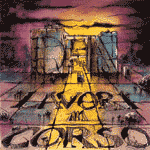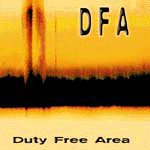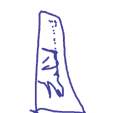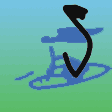

| WEB REVIEWS - WEB REVIEWS - WEB REVIEWS - WEB REVIEWS - WEB REVIEWS | |||||||||||||||||||||||||||||||||||||||||||||||||||||||
|
|||||||||||||||||||||||||||||||||||||||||||||||||||||||
| PRESS REVIEWS - PRESS REVIEWS - PRESS REVIEWS - PRESS REVIEWS - PRESS REVIEWS | |||||||||||||||||||||||||||||||||||||||||||||||||||||||
| Magazine | CD | by | Magazine | CD | by | ||||||||||||||||||||||||||||||||||||||||||||||||||
 |
Arlequins (n.0 Jul.1995) |
 |
Alberto Nucci
|
 |
Metal Shock (A. XI n.199 Sep.1995) |
 |
Gianni Della Cioppa
|
||||||||||||||||||||||||||||||||||||||||||||||||
 |
Thunder (A. 4 n.27 Mar.1997) |
 |
Lucio Mazzi |  |
Flash (A. XIII n.99 Apr.1997) |
 |
Andrea Bertamino | ||||||||||||||||||||||||||||||||||||||||||||||||
 |
Metal Shock (A. XIII n.241 Jun.1997) |
 |
add |  |
Psycho (Jul.1997) |
 |
Gianni Della Cioppa
|
||||||||||||||||||||||||||||||||||||||||||||||||
 |
Arlequins (Sep.1997) |
 |
Alberto Nucci |  |
Nobody's Land (Sep.1997) |
 |
Luigi Seviroli | ||||||||||||||||||||||||||||||||||||||||||||||||
 |
Big
Bang (n.23 Nov.1997) |
 |
Aymeric Leroy |  |
Keyboard (Dec.1997) |
 |
Dan Barrett | ||||||||||||||||||||||||||||||||||||||||||||||||
 |
Big
Bang (n.33 Dec.1999) |
 |
Aymeric Leroy |  |
Il Mucchio Selvaggio n.383 Feb.2000 |
 |
Gianni Della Cioppa
|
||||||||||||||||||||||||||||||||||||||||||||||||
| Arlequins (A.XI n.27 Feb. 2000) |
 |
Cesare Salvani
|
 |
Ciao (A.1 n.3 Apr.2000) |
 |
Mario Giammetti | |||||||||||||||||||||||||||||||||||||||||||||||||
| . .  |
| Arlequins - Lug.95 |
| DFA come from Verona and propose a well crafted symphonic
jazz-rock. Don't think you have to deal with the same old group that tries
to imitate somehow the Mahavisnu Orchestra: the Italian quartet has many
interesting ideas, and becomes even aggressive when the guitar plays with
a heavier sound. As a matter of fact it is the guitar the leading instrument
of the band that has the line-up of classic rock groups, except for the
singer that is missing, while the keyboard is often playing backing pads
or underlining the great movement of the rhythmic section and of the guitar.
The listening of these 6 instrumental tracks is not at all difficult, nor
restricted to those who are used to this musical genre; DFA is basically
a rock group who plays jazz without any brass or contrabass, and they do
it in a very personal and interesting way. There's no more left to say:
describing the tracks with all their thousands facetings would be very hard.
(Alberto Nucci) |
| top of page |
| . .  |
| Metal Shock - Set.1995 |
| Puzzling name and title for this quartet from Verona
that propose a qualified revision of the jazz/prog style of Pierre Moerlen's
Gong. Old sound, therefore, and this seems to be quite strange if you focalize
the young age of the musicians. In evidence Roberto Tommasini's keyboard,
soft and filamentary, depending on the needs, but Minella's guitar gives
its effort too, with its melodic openings. 6 tracks well recorded and with
a beautiful cover. Above all "Collage", the distorted "Panther",
"Space Ace Man" and the song-track. The lack of a singer weights
on the fluency of the product.
(gdc) |
| top of page |
| . .  |
| Thunder - Mar.1997 |
| Italian progressive music has never died. The only thing
is that, to find it out, you have to dig in all the smallest and more hidden
music shops, where you can find great music for a few people, in other words,
you have to become a musical detective. Too much for a musical age where
a song lasts a month, in the fast-food-music-era where people just listen
what the radio offers. So this CD (and many others) will not be noticed
by the great mass of the people. It's a pity because this group from Verona,
besides having a great instrumental technique, has also many good intuitions
that always redeem the echoes (inevitable?) of the great groups of the past
(Gentle Giant and Banco first). Long tracks as usual but, incredibly, never
boring (if you have just a little feeling with this musical genre). A particular
mention for "Trip on Metrò". Good debut. (L.M.) |
| top of page |
.  |
| Flash - Apr.1997 |
| Spectacular Italian quartet that shows an enrapturing
technical and composing preparation, the sound follows the the channel of
a hard prog-rock, deeply influenced by jazz, a sort of heavy version of
Deus Ex Machina, maybe not that odd, but not for this easier. Flash's readers
will appreciate it for the large use of hammond B3 and distorted guitars,
while those who loves DEM will certainly place D.F.A. among their favourite
bands finding in the italian lyrics a winning atout. Listen carefully to
the Area-King Crimson mood in the opening "Work Machine" and in
the instrumental "Space Ace Man"; it takes you in a vortex of
notes that run after each other, that fit into each other without fear of
annoying. Many compliments. (ABe) |
| top of page |
. |
| Metal Shock - Giu.1997 |
| Excellent debut CD for this quartet from Verona, who
already gave evidence of itself with the demotape "Trip on Metrò",
reviewed on this magazine. The group offers 60 minutes of high level music
both for compositions and performance and the technical skill of the four
musicians is not in doubt. They often enjoy themselves in odd and intricate
moods without falling in unnecessary technicism. Regarding the style, D.F.A.
recall the best early 70's progressive rock tradition, Gentle Giant and
King Crimson above all, but with fusion and funky influences; compared with
the debut demo, the songs show smoother arrangiaments and are certainly
more enjoyable thanks to the insert of vocal parts, sang by drummer Alberto
De Grandis and by keyboard player Alberto Bonomi. Among the 6 tracks, I
like to mention "Work Machine" that after a beginning worthy of
the best acid 70's, developes into a more melodic and ambient part with
great keyboard arrangiaments. In my opinion the best track is "Pantera-La
Sua Anima", in constant balance between prog-rock, jazz and fusion;
remarkable is the attention payed on dynamics and on compound time signatures
that lets every instrument show up at the right time, leaving to the song
its consistency. Truly magic is the final part for acoustic guitar and flute,
between the brazilian song style and the more inner and melodic fusion,
it is worth by itself the price of the CD. A band that deserves all your
attention. (add) |
| top of page |
. |
| Psycho - Jul.1997 |
| It is almost embarassing the high quality of D.F.A.,
authors of a fantastic debut reflecting a jazz-rock image, including everything,
from well developed prog to the mark of a ripe instrumental technique serving
the cause of music. Convincing CD, it is a debut album and a point of departure
to new and unknown universes of art. (Gianni Della Cioppa |
| top of page |
. |
| Arlequins - Sep.1997 |
| I've been pleasantly surprised finding a CD by D.F.A.
so soon, for I reviewed their demotape on this magazine a couple of numbers
ago. And I must admit that the improvement has been remarkable. First of
all, making a brief report, D.F.A. played (play) a complex progressive jazz-rock
with Holdsworth and Weather Report influences. In this CD we find two important
news in their music: a keyboard player, Alberto Bonomi, who brings with
him a good set of keyboards and synths, including the canonical Hammond
and Mellotron. In second place vocal parts have been added to the former
propose that was totally instrumental. The whole thing has happened but
the band has not lost a pound of the energy that oozed from the previously
analyzed tape, on the contrary they got more, as if being produced by the
new Deus Ex Machina's label gave them an increase of grim and roughness
coming from the group from Bologna. The result is something quite close
to the best Minimum Vital but that differes from them just for the strength
and aggressiveness of some situations, that are not properly hard, but able
to give high energy to the listener like very few groups that play this
genre can do. The six tracks are rather long and complex with a peak of
more than 16 minutes for the wonderful "La Via". I need to mention
the shorter but intense "Collage" (really almost hard...) and
"Space Ace Man". In conclusion, you understand that this is not
a CD just fot those who love jazz or canterbury moods, being it a great
symphonic-progressive album, first of all! (Alberto Nucci) |
| top of page |
. |
| Nobody's Land - 1997 |
| Very good these D.F.A., italian group proposing an explosive
mixture of prog-rock with influences from romantic jazz-rock, mould Anglagard
and Gentle Giant, to typical PFM moods. The whole is filtered in a very
personal way and coloured by the instense lyrism of Alberto Bonomi's mellotron.
The hues are oneiric and obscure, fractured by expressionist explosions
that give great emotional strength. The tracks in "Lavori in corso"
are seven (even though the cover notes as six) and all of them are great.
I mention the excellent and acoustic "Trip on Metrò" with
parts of flute and keys really emotioning. Then the fragmented and Crimsonian
"Space Ace Man" characterized by the excellent work of Silvio
Minella's guitar. "La Via" (16'19"!) is huge and mysterious,
a must for the 70's prog-rock lovers. D.F.A., besides being gifted with
instrumental technique, are a band to keep an eye on and this CD is definetly
a must. The album signs the debut of the label Scolopendra from Bologna. (Luigi Seviroli) |
| top of page |
. |
| Big Bang - Nov.1997 |
| Italian groups must be praised for their major contribution
to the progressive rock revival of the last few years, but it also has to
be noted that in most cases, instrumental knowhow rarely matches goodwill.
This is not necessarily a huge problem in the case of symphonic bands -
a genre in which technique is not that important -, but it is when the music
aspires to a high level of complexity : insufficient instrumental mastery
can then cause major disasters.
It should be no surprise that DFA's first album comes out on Scolopendra, a new label recently created by the lead singer of Deus Ex Machina, Alberto Piras. There's actually a striking similarity between the sextet from Bologna and the quartet from Verona, one that has a lot to do with the disconcerting ease with which both groups perform their music - while it's obviously very demanding from a technical point of view, it is never showoffy, emotionally direct enough to allow pure listening pleasure. Those who find Deus Ex Machina's music a little too exuberant or dissonant should rest assured that DFA remains constantly accessible and melodic. Their album may therefore seem less profound or extreme from an emotional point of view, but on the other hand it should appeal to a larger audience. I am not talking of commercial compromises here, on the contrary. Indeed, DFA's mixture of complexity and efficiency is hard to match. In this respect the fact that a large amount of the music here on offer is purely instrumental is to be praised. Vocals, as a matter of fact, are not DFA's strongest point, unlike DEM. In fact they are only a recent addition to the group's music, and one that fails to totally convince since its instrumental dimension is really self-sufficient. The fact that the second track, 'Collage', ends with the eloquent words 'shut up your fucking mouth !'... followed by almost 30 minutes of purely instrumental music (save for a brief return of the vocals at one point), is probably an indication that the band shares part of my perplexity. These instrumental parts are a constant delight: rich, varied, colourful, dynamic, entertaining... The very detailed arrangements underline the quartet's almost osmotic tightness. It should be noted that DFA's main creative force is its drummer and co-founder, Alberto De Grandis. With the help of the group's latest recruit, keyboard player Alberto Bonomi, he has created rhythmic structures that are solid enough to allow their compositional creativity to blossom. Indeed, DFA's melodic flair is never sacrificed in favour of gratifying but ultimately sterile jazz-rock tendancies, yet there is enough spontaneity in the playing to generate excitement. Of course, the music is very arranged so individual freedom is limited, but still sufficient to reach the band's aim : music that is fulfulling for both the brain and the heart. It would be unfair to categorize DFA as "Deus Ex Machina's nice little brother". Sure, their music takes less risks and is not as perfectly crafted (mainly from a vocal point of view), yet it took DEM much longer to reach the level of musicality this band has managed with only one album. Suffice it to say that DFA's future looks very bright ! (Aymeric Leroy) |
| top of page |
. |
| Keyboard - Dec.1997 |
| Progressive rockers, take heart. This superb new band from Italy carries the torch of Gentle Giant and Yes without being imitative. "Lavori in Corso" features intricate, complex, high-energy ensemble playing that grabbed me in the first ten seconds and didn't let go. Possibly my favourite release of the past three years. |
| top of page |
. |
| Big Bang - Dic.1999 |
| Last news: 1500 copies of Duty Free Area were sold in
a few weeks. Great, isn't it? This goal reached in such a short time must
kindle all those who have already listened to the second fantastic DFA album.
Skill and success (related, of course, to progressive rock), will they manage
it well? It is anyway a good prospect to have progressive bands preparation
adequately rewarded. With this success the band reaches the highest ranks, and their music is destined not only to progressive fans, but to all those who love good music. With their first work, "Lavori in corso", DFA had already arisen admiration. Merging an incredible technique with a competence in the arrangiaments by far above average, DFA's music could appear as an easier Deus Ex Machina. Inevitable link because Lavori in corso was produced by Scolopendra, a label created by DEM's singer Alberto Piras. This relationship, renewed on Duty Free Area where Piras is the singer in one track, has no more reason to exist. DFA's style cannot be related to anyone else's. Though they share with DEM the taste for elaborating sophisticated harmonic architectures and complex rhythmic grooves in their compositions, on the other hand DFA always keep their attention on melody and on fluency of their style. The 50 minutes of this CD come to end very quickly, and once it is finished you only want to do one thing, listen to it again! It has to be noticed that its structure has been well thought. The heart of the album is formed by three long tracks (from 8 to 11 minutes) and carries on that melodic richness and art of enchaining that surprised on "Lavori in corso". The four musicians play with joy, either when the rhythmic section flirts with a "jazz-rock groove", or when guitar and keyboards (with an analogic flavour, as it has to be) contrive between solos and backing parts with a rare sense of balance. Before the CD's heart, DFA propose a long instrumental track, "Escher", that signs an unespected raid in a more plane and hypnotic prog recalling Ozric Tentacles. Keyboard player Alberto Bonomi openly decided to enlarge his sound palette, creating a vortex of synthetizers that, together with the duet bass-drum, gives the base for guitar's intense digressions. Airing their music this way DFA made something more than modifying their style, they gave an attractive and fascinating entrance to the album. And they renew this strategy at the end of the album proposing "Malia", a delicate conclusion magnificently purified by Giorgia Gallo's voice. Let's rightly talk about vocals, to notice that DFA managed it at best, limiting it to necessary. In fact we have 26 minutes of instrumental compositions and the others are sung in small percent. Alberto Bonomi and Alberto De Grandis sang just in one track, and seemed to feel on their ease, the remaining vocals are by Alberto Piras ("Esperanto") and Giorgia Gallo ("Malia"). So in "Duty Free Area" they not only corrected the imperfections of "Lavori in corso", but made more: Using at best their considerable potential and enlarging the field of their style exploration, the italian quartet leaves the cathegory of the (very) promising bands to enter the circle of the best bands of the moment. It is unforgivable to pass by such a talent. (Aymeric Leroy) |
| top of page |
. |
| Mucchio Selvaggio - Feb. 2000 |
| Two years has passed since DFA debut on Scolopendra,
a label close to Deus Ex Machina (one of the most original italian bands
well known in the U.S.), that seems to have disappeared. The music is rooted
in progressive rock, but do not imagine you have to deal with some early
Genesis-style symphonies: here the term progressive has a real meaning,
the music flirts with some jazz-rock, the scores are mainly instrumental
and when a melody takes place, it is held by great guests. "Esperanto"
is sung by DEM's lead singer Alberto Piras (with lyrics, among the others,
in italian, english and spanish) and "Malia" is performed by the
sweet voice of Giorgia Gallo. We said jazz-rock, following the musical idea of some hybrid but fascinating creatures like Brand X, Gong and Dixie Dreggs, whose technique is sublime. But the musical language too becomes very fluent in DFA music, so that the artistic level of "Ragno", "Escher" and "Caleidoscopio" is really very high. The audience for this kind of music is not large, but exists: the problem is the label that doesn't advertise its catalogue. It's a pity, becouse in ten years of work Mellow Records produced many high quality groups. Included DFA. (Gianni della Cioppa) |
| Inizio pagina |
. |
|
|
| It is a pleasant news to find again this quartet from
Verona, three years after its surprising debut, so healthy and willing to
amaze the listeners with its stereoscopic sound-images. Transalpine reminiscences
lead us to Minimum Vital (without their folk mood) and the electronic sound
of Pulsar even more than in their first album. But such comparisons are
withou doubt restricting: these are only a few ingredients that combine
so well balanced in DFA's sound-potion. In this work you can find some jazz,
vanguard or symphonic moments. More than for the originality, this album
has to be appreciated for the good production (very rare in the italian
scene) that gives deepness to the global sound. To be mentioned Alberto
Piras presence: his way of singing fits very well to the labyrinthical paths
covered by the band never being, anyway, hard and difficult as in Deus music.
Fascinating for its changing colours and fantasy entertainments is the long
track "Ragno" (11:26), inwhich central part the band seems to
give room to group-improvisation. In my opinion could be carried on in the
future the co-operation with Giorgia Gallo, whose ductile and bautiful voice
give light to the soft and dreamy "Malia". eally a beautiful album,
well crafted where nothing seems to be casual.
(Cesare Salvani) |
| Inizio pagina |
. |
|
|
| Born in the early 90s on De Grandis (drums) and Baldassari
(bass) initiative, DFA recorded a demotape in 1995 followed, when Alberto
Bonomi joined the group, by their first CD "Lavori in Corso" (1997)
that obtained good reviews and gave them the chance of playing live with
bands such as "Banco del Mutuo Soccorso" and "Le Orme".
This second CD confirms the high potential of the band. The introducing
instrumental track, Escher, that opens with keyboards and programmed percussions,
shows the group mental wideness and when the real drum begins to play the
music changes balancing between fusion and space rock thanks to the hypnotic
riff played by the bass and to Silvio Minella's guitar raids, with undoubtedly
interesting polyrhythmical breaks. Caleidoscopio, which is softer, reminds
some Perigeo moods and, when the melody takes place, early PFM. With the
crazy "Esperanto", sung by Alberto Piras (Deus Ex Machina), it
is like listening to Gentle Giant. This to let you understand that we're
facing a group that is not at all afraid of daring nor exploring less accessible
areas. The wish (and the invitation) is to carry on their way without looking
for easy and transitory consents.
(Mario Giammetti) |
| Inizio pagina |